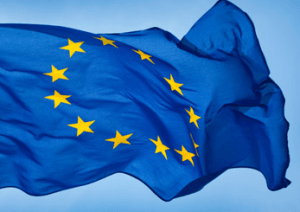Ghana bans export of some vegetables to EU market
 The Ministry of Food and Agriculture (MoFA), has placed a temporary ban on exports of some vegetables to the European Union market.
The Ministry of Food and Agriculture (MoFA), has placed a temporary ban on exports of some vegetables to the European Union market.
The ban would remain in place until all issues on interceptions by the Food and Vegetable Office (PVO) of the European Commission (EC) are addressed.
The affected vegetables include; Capsicum, Solanum species- Aubergines, Momordica, Luffa and Lagenaria (gourd family) which accordingly have undesired consequences for the country’s export vegetable sector.
Mr Fiifi Kwetey the sector Minister who announced this at a news conference in Accra said, the Plant Protection and Regulatory Directorate (PPRSD) of MoFA) is also to ban exporters of fresh vegetables not belonging to registered associations or recognised by the directorate and sourcing from unregistered farms.
He said agents of freight forwarding firms working on behalf of exporters shall not interfere and add produce after inspection by PPRSD.
Also Airline operators and agencies under the Ghana Revenue Authority henceforth shall not permit exporters to add any produce without approval from PPRSD.
All plant products regulated articles being shipped from Kotoka International Airport and the Tema Port, should be inspected and certified by PPRSD as well as validate airway bills before delivering to the airline and collaborate with relevant agencies to address the endemic issue of false coding.
The Minister said the PPRSD would step up and conduct thorough inspection of produce increase the sampling size and enforce the ban on all exporters who flout guidelines and regulations.
The PPRSD would also inspect and regulate farms sourced by exporters to ensure that vegetables are supplied from farms with no history of false coding moth infestation.
PPRSD is to review and enforce laid down standard operating procedures for effective monitoring of the supply chain.
Mr Kwetey said the directives have been taken because in 2012 an audit team from FVO of EC was in Ghana in response of interceptions of exports, due to the presence of pest in the products.
He said the team also identified lack of proper documentation for exports which were not acted upon after visits by PPRSD and Exporters Association in that year or brought to the notice of the then minister and subsequent ministers.
Mr Kwetey said this year another delegation was in the country in regards to the same issue.
Explaining further, the Minister said, as of last week the Ministry received a final reports of the latest audit which also includes MoFAs remedial plans indicating that a task force was formed in April and reconstituted.
It was to ensure that the sector adheres to timelines of address the issues and therefore charged the task force to get the vegetable sector back on track by engaging stakeholders and working closely with PPRSD and officials of EC PVO to allow exporters to exporters to export these selected varieties in a very short time.
He said following the audits Ghana was advised by PVO of the EC of a temporary ban on the vegetables, adding that this has come as a result of inadequate collaboration from the public and private sectors.
He said government would not allow the unscrupulous practices to destroy a very promising export sector.
Mr Kwetey said based on reports received this year, analyses carried out indicates that 30 per cent of interceptions reported by the EC is attributable to the presence of the false coding moth in Chillies, 24 per cent is as result of thrips on Garden Eggs and related family and 18 per cent is due to presence of thrips on Turia and related family.
He said this has the effect of destroying the image of the country and endangering the businesses of a number of exporters who are committed to excellence and have made enormous investments in their production and supply chains, warning that this unfortunate situation could no longer be tolerated by the ministry.
Mr Gideon Kwame Boye Quarcoo, Chief Executive Officer, Ghana Export Promotion Authority said the ban should be a wakeup call to the nation and for all exporters to make sure they go through the right processes before getting their products exported.
He said the EU is Ghana’s major export market.
He said 2.5 billion dollars was made from non-traditional exports last year and expects to reach five billion dollars in 2019 through increase in exports.
Mrs Milly Ezeria Kyaa Boamah, Director PPRSD said EU has sent a consultant to educate exporters on what to do in order to get their products into the EU market.
Source: GNA
